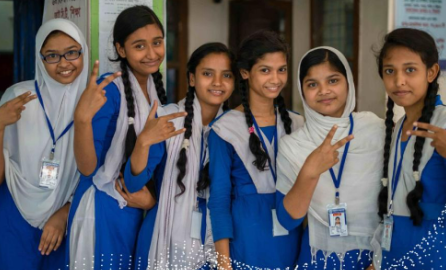Local communities build and sustain peace: strengthening women and youth participation

-
Gender marker: G2-Promotes gender equality as a primary objective
-
Period of implementation: 2019-2022
-
Amount: EUR 1,000,000
-
Geographical area: Eastern Partnership, Sub-Saharan Africa
-
(Co-)funded by: Austria
-
Implementing partner:
-
Link to the project:
-
GAP III’s Areas:
-
Women, peace and security
- National processes in the implementation of WPS
-
As highlighted at the Global Women’s Forum for Peace & Humanitarian Action 2020, “Now more than ever, support for women responding to crisis in their communities is essential”.
While many efforts have been made since 2000 to effectively implement United Nations Security Council Resolution (UNSCR) 1325 and follow-up resolutions at all levels, local women peacebuilders and humanitarian responders around the world are still struggling to have their roles recognised, included and respected, with local women’s participation in decision-making and youth leadership continuing to be some of the key challenges.
The global study on the 15th Anniversary of UNSCR 1325 on Women, Peace and Security (WPS) recalls the key role of women in ensuring the effectiveness, success, and sustainability of peace processes.
The Austrian Development Cooperation is committed to following this recommendation by supporting interventions that aim at reinforcing the role of women as agents of peace and promoting the full engagement of national and local governments. This project also involves regional and global multilateral organisations (i.e. African Union, Intergovernmental Authority on Development, the Organisation for Security and Cooperation in Europe, European Union, North Atlantic Treaty Organisation or UN Women).
More specifically, the project "Local Communities Build and Sustain Peace: Strengthening Women and Youth Participation in Building Sustainable Peace” targets a wide range of beneficiaries, from duty-bearers, like local and national authorities, police, and other security forces, to local women (including young women) as rights-holders. It cooperates with key stakeholders such as traditional and religious leaders, community leaders, women’s rights groups, youth organisations, teachers, journalists, and mediators.
The project’s activities (i.e. national forums, trainings, regional conferences) have contributed to increasing the understanding of local and national authorities and civil society on the importance of women’s and youth participation in decision-making. It has also reinforced their capacities to monitor and ensure accountability for the effective implementation of the WPS agenda.
In Armenia, Georgia, Moldova, Ukraine, Kenya, South Sudan, and Uganda, the project has increased the capacity of women, including young women, to participate in and influence peace and security and political processes, such as peace negotiations, implementation of peace agreements, development and implementation of National Action Plans and elections.
Another highlight of the intervention is the involvement of journalists, who contribute to reaffirming the paramount importance of women’s participation in peace and security and political processes by challenging negative stereotypes and stressing the importance of viewing conflict and peace processes through a gender lens. On 17 March 2022, the Austrian Development Cooperation and the Global Network of Women Peacebuilders (GNWP) honoured Mercy Tyra Murengu from Kenya as one of the journalists who highlighted the importance of women, peace and security committees run by women and explains how they are shaping the society and building peace within their communities. Listen to her story on how women peacebuilders in the Turkana Region of Kenya have faced a conflict related to cattle rattling!
Furthermore, thanks to this project, women, youth, journalists, civil society, and policy and decision-makers have established local, national, regional, cross-regional, and cross-border networks. Their best practices and lessons learned are being disseminated for a broader and more effective implementation of the women and youth, peace, and security agendas.
This project is a good example of how the Localisation of Women, Peace and Security strategy initiated and proven by the Global Network of Women Peacebuilders (GNWP) represents an effective and innovative, bottom-up approach to the implementation of UNSCR 1325 and its supporting resolutions. It fosters women as agents of peace and calls for their meaningful participation at all levels of decision-making on matters of peace, security, and governance. For instance, following the Peace Exchange methodology, in 2022, GNWP and its local partners in Kenya, South Sudan and Uganda hosted Peace Exchanges in Kampala, Uganda, and Eldoret, Kenya, to learn from each other's experiences in the Localisation of the WPS resolutions and inspire local authorities to push for the advancement of the agenda.
"We live in a post-war culture in South Sudan. In addition, we are fighting against many cultural practices and stereotypes that ascribe a lower status to women comparing to men. Many think women should marry and take care of the children. If you want to motivate women to become politically engaged, you first have to break down these stereotypes" says activist Elizabeth Yokwe Biniya Moga, EVE Organization for Women Development. (©ADA)
